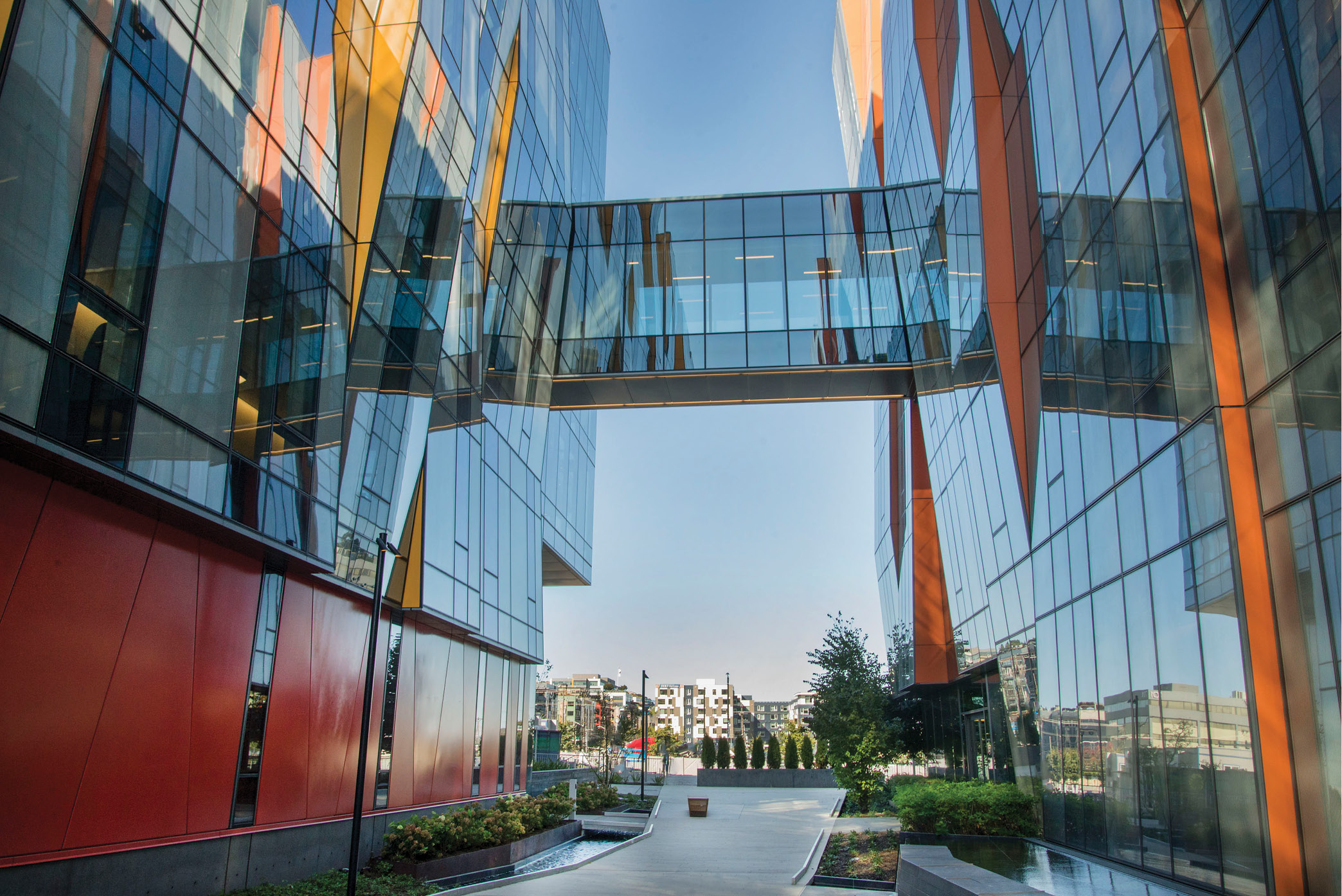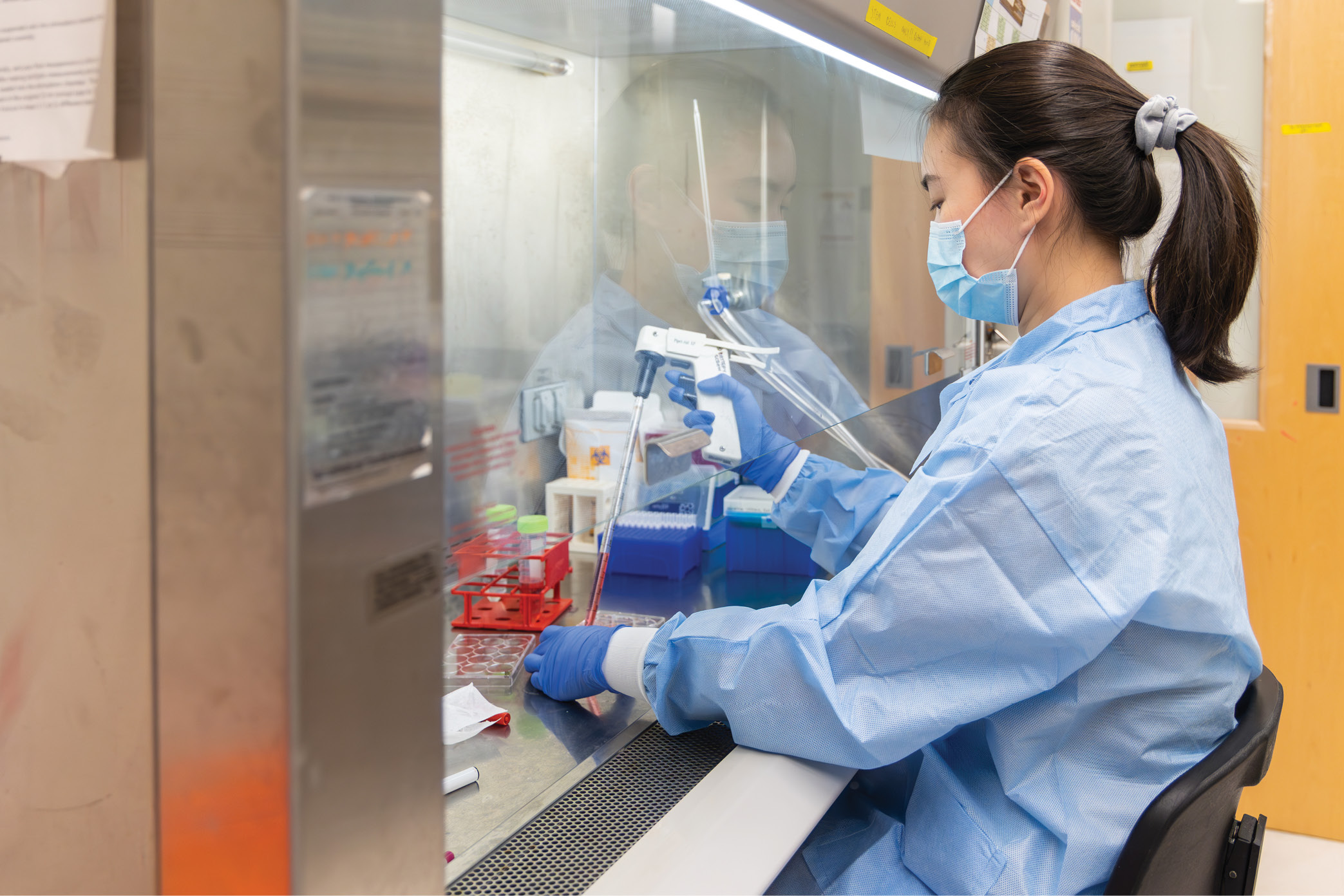State leaders often hope that success in one industry will spawn opportunities in others. Luckily for Washington, this lofty aspiration has unfolded right before their eyes. It seems that “tech,” in all its variations, has become synonymous with Washington. Whether it be information tech, fintech or clean tech, chances are assumptions about that industry include images of the Seattle skyline. That being said, the city’s reputation and wealth of cutting-edge resources have certainly inspired a biotech boom.
“It’s no secret that AI, machine learning, and computational research are paving a next generation of scientific innovation,” said Marcus Yamamoto, a senior vice president with CBRE in Seattle specializing in life sciences and healthcare, in a press release. “The Puget Sound region’s deep technology roots coupled with world-class research institutions and their dedication to commercialization has thrust Seattle into a leadership role across a wide array of scientific verticals.”
From pharmaceuticals and medical device manufacturing to cancer and vaccine research, innovation across the life sciences industry has accelerated in Seattle. Ranked as one of the top life sciences clusters in the nation, according to CBRE, Seattle is home to a network of major research institutions including the University of Washington, Institute for Systems Biology, PATH, Seattle Children’s Research Institute, headquarters of the Bill & Melinda Gates Foundation, Fred Hutchinson Cancer Research Center, Seattle Cancer Care Alliance and the Allen Institute for Brain Science.
The presence of these organizations has played a role in influencing the region’s innovative atmosphere. And investors and companies alike are certainly taking notice.

In a matter of months, three Seattle-based biotech businesses have secured billion-dollar buyouts from leading life sciences corporations. This string of acquisitions began in March with Pfizer purchasing Seagen, formerly known as Seattle Genetics, for $43 billion, this year’s largest acquisition deal to date. Three months later, in June, Swedish Orphan Biovitrum (Sobi) acquired CTI BioPharma for $1.7 billion and Novartis completed its acquisition of Chinook Therapeutics, which totaled $3.2 billion, in August.
As a part of Moderna’s West Coast expansion, the vaccine giant has leased 54,350 sq. ft. of space in Seattle. In a press release from March, the company states that this new location will “provide technology solutions across the enterprise and further scale the implementation of artificial intelligence (AI) and cloud-based tools across the platform by capitalizing on the region’s existing technology talent.”
“Moderna is investing to fully realize our ambition of embedding technology into everything we do. By building technology solutions that enable business, scientific and people-led breakthroughs, we will continue to make a positive impact on the people we serve,” said Brad Miller, chief information officer of Moderna. “We are hiring rapidly in-market across key tech capabilities and are excited to grow our presence in Seattle, an area rich in highly skilled talent.”
This increased interested in Seattle by the biotech industry has led the city to be named one of the three fastest-growing life science markets in the U.S., alongside Boston and the Bay Area, according to a CBRE report.
Room To Grow
Even with the monumental growth Seattle’s life sciences industry has experienced, one thing remains constant: There is still plenty of room for more.

UW Medicine’s South Lake Union Research Campus
Photo by Kevin Scott courtesy of UW Medicine
According to a recent report from CBRE, the Seattle area has 1.6 million sq. ft. of life sciences space currently under construction, with only 53% pre-leased.
Dexter Yard, a new life sciences campus that includes two 15-story towers in South Lake Union, is one of the latest projects to be completed. The complex, which features 528,000 sq. ft. of office and lab space, is next door to an almost three-acre site that is also slated to become a life science campus.
While that project finds its footing, Dexter Yard has already started to fill up with tenants. Shape Therapeutics, a gene therapy startup, Parse Biosciences, a single-cell sequencing company, and Monod Bio and Outpace Bio, both of which focus on protein engineering, are among Dexter Yard’s first occupants.
In addition to Dexter Yard, varying phases of construction have begun on multiple life sciences campuses throughout South Lake Union. Trammell Crow Company and Washington Capital Management expect their collaboration, an 11-story life sciences building, to be completed by the third quarter of 2024. The property spans 282,700 sq. ft, with 124,000 sq. ft. already preleased to the Seattle Children’s Research Institute.
Vulcan Real Estate received approval for its latest project, a nearly 362,000-sq.-ft. research lab facility, in June. The Seattle-based development and real estate company has previously constructed locations for some of Seattle’s most influential life sciences organizations including the Allen Institute’s headquarters and UW Medicine South Lake Union research campus, which features state-of-the-art facilities that aid in cell analysis, bio-molecular imaging, nutrition and obesity research, pathology research, and many other sectors of study. With leading programs in family medicine, primary care, bioengineering, radiology, pediatrics, internal medicine and more, UW Medicine and its graduates continue to draw new and expanding companies to the Puget Sound.
Beyond the Puget Sound
While the Seattle area’s life sciences sector is certainly making headlines, it isn’t the only region in Washington where this industry is taking off. On the opposite side of the state, Spokane’s life sciences sector has skyrocketed. The city is home to more than 500 healthcare and life sciences companies employing more than 36,150 people as well as the second largest allied health program in the nation.
In June 2022, Spokane celebrated a big win for this burgeoning sector when Jubilant HollisterStier signed a $149.6 million contract with the U.S. government to expand its COVID-19 vaccine and therapy manufacturing plant in the city.
With most of the state’s life sciences activity anchored in large urban areas, Washington is working to spread this sector into its rural communities.
The Life Science Washington Institute (LSWI) has created two new grant programs, the SBIR/STTR Matching Fund and Washington Competes, to expand funding opportunities for diverse and early-stage companies throughout the state. The SBIR/STTR program is focused on supporting companies outside of King County, while the Washington Competes program is open to all locations, prioritizing organizations that are women-owned or socially or economically disadvantaged. Each of these programs can award up to $25,000 to life sciences companies developing technologies that will improve health and wellbeing. Financing this initiative was made possible due to a partnership between LSWI and the Washington State Department of Commerce.

